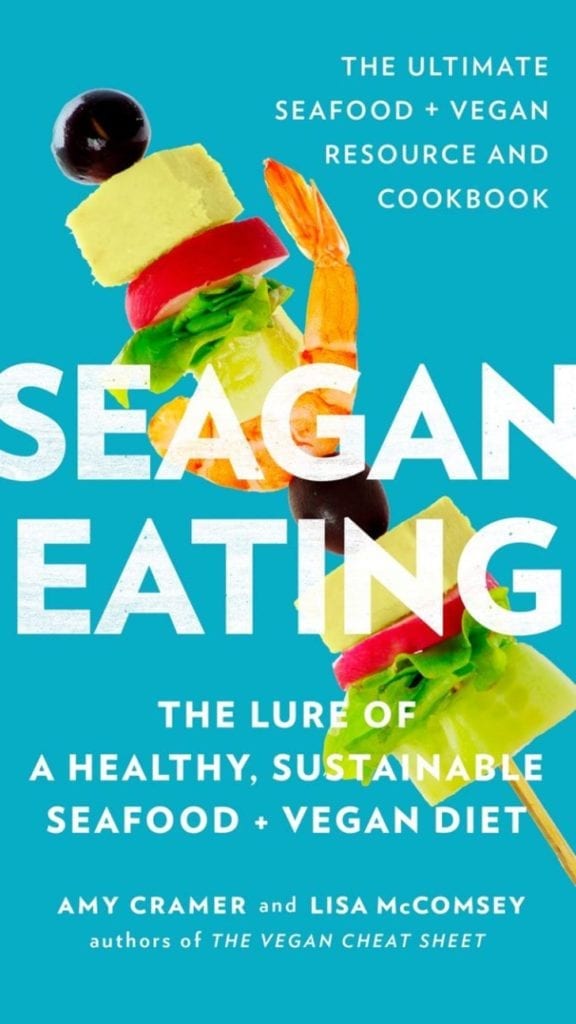Thanks to the rise of the vegan movement and the popularity of the vegetarian and flexitarian lifestyles, many are seeking the next big food trend.
Originally created in 2016 by food writers and the team behind the The Vegan Cheat Sheet, Amy Cramer and Lisa McComsey, the Seagan diet is being touted as a possible contender.
Combining the plant-based regimen of the vegan lifestyle, the Seagan diet espouses the benefits of a few sustainably sourced seafood meals each week.
The logic behind the trend is that for many, the classic plant-based diet can be quite restrictive, meaning that a lot of people struggle to stick with it.

Coupling this with the fact that many vegans find it hard to source omega-3 fatty acids in their diet, the writing team behind the book, Seagan Eating, say that it makes sense to add oily fish at meal times.
The book, which is filled with tips and recipes, recommends only eating fish that is sustainably sourced - thankfully quite easy in Scotland - but does add that frozen fish can always be an option for those looking for more convenience.
The term 'Seagan' ( not to be confused with beegan, a vegan that eats honey) was originally coined by the pair to describe this new food movement.
It's distinct from 'Pescetarianism' in that those following the new trend don't eat dairy or eggs.
Nutritionist Alix Woods states that adding items such as sushi and sashimi to your diet can be a good thing, she said: "Sushi is rich in Omega 3 fish oils - classed as essential fats as the body can't make them - these oils, keep all systems 'well oiled'.
"They also reduce high cholesterol levels. Studies have found they lower the risk of heart disease and overall inflammation; lowering blood pressure, tryglycerides and maintaining heart rhythm."
So what makes it important to get these vital acids from fish and not from the plants who also offer them?
In an article in Epicurious, McComsey explained that the type of fatty acids found in plant sources requires a lot of "metabolic work" and doesn’t "absorb as efficiently".
She said: "Your body does not treat it in the same way as the high-quality omega-3s you get from fish."

Chowders and soups are a great way to eat seafood. Picture: Seafish
Leading dietitian and nutrition consultant, Juliette Kellow said that any diet incorporating both plant-based and seafood meals offers several of the "key elements" of current UK Government guidelines for a healthy diet.
She said: “Government advice recommends that at least two thirds of what we eat should be based on plant foods. But Government also recommends that we consume two portions of fish each week, one of which should be an oily fish such as mackerel, sardines or herring.
“Enjoying a Seagan diet that incorporates seafood at least twice a week, provides the
missing link in purely plant-based diets to help ensure diets are nutritionally balanced as well as tasty.”
The UK’s leading authority on seafood, Seafish, recently launched their own campaign backing the movement.
The Think Seagan campaign aims to showcase why a Seagan diet is a healthy lifestyle and dietary choice, providing enhanced nutritional value.
The launch included a Seagan ‘starter’ kit, with a 28-day Seagan meal plan, Seagan recipes including how-to videos, and a store cupboard guide to the vegan essentials.
They also released a range of educational tools, such as seafood fact and myth sheets.
Marcus Coleman, chief executive of Seafish, said: “The health benefits of eating seafood are well documented and coupled with the benefits of a plant-based diet, seagansim presents a sustainable, tasty and flexible diet for people of all ages and stages of life.
“Our Think Seagan campaign will inspire and educate those looking to make changes to their diet.”
Though it's not all good news for those looking to try this new trend, The Vegan Society, a charity that provides education and support for the vegan lifestyle, said that while it is good to see more people moving away from red meat, dairy and eggs, also warned that consuming fish flesh can have a "big impact on the levels of mercury in our blood".
They also added that commercial fishing has caused "90 per cent of large fish populations to be exterminated in the past 50 years."
Meaning that should you choose Seaganism, you would continue to contribute to this problem, Dominika Piasecka, spokeswoman for The Vegan Society, stated that it is better for those looking to take up a plant-based diet to stick to veganism, she said: “It’s promising to see more people are eating increasingly plant based diets and eliminating meat, dairy and eggs.
“The British Dietetic Association shares the message that vegan diets are suitable for people of all ages and life stages; there’s no need to include seafood in your diet as we can all thrive by eating healthy and delicious plant foods."
